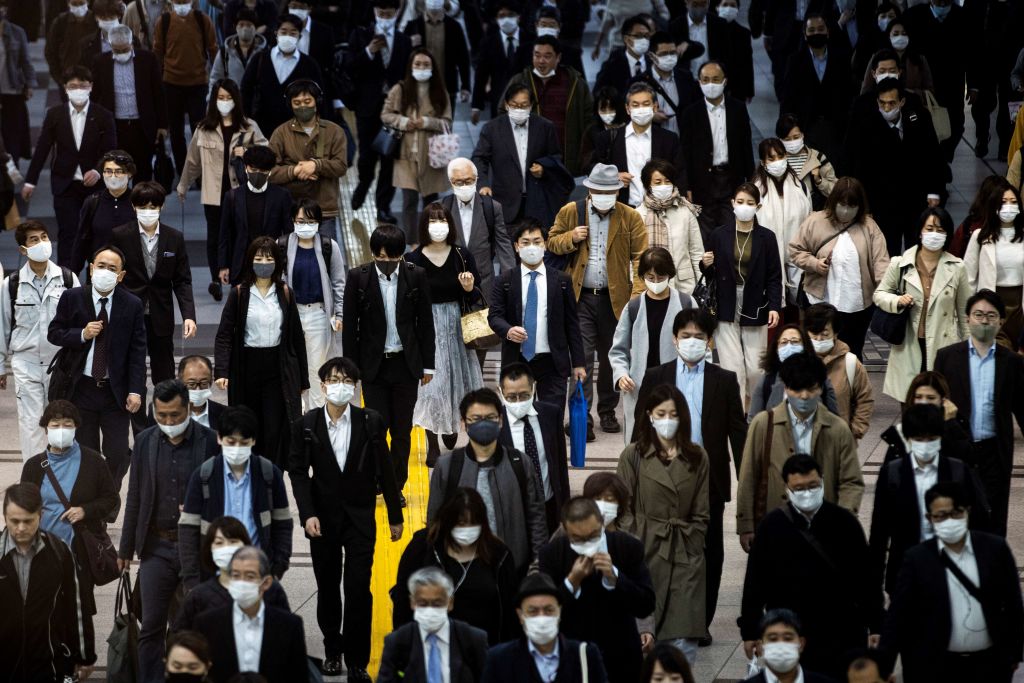Some experts believe previous exposure to a similar virus helped East Asia fight COVID-19. Others are doubtful.


A free daily email with the biggest news stories of the day – and the best features from TheWeek.com
You are now subscribed
Your newsletter sign-up was successful
Dr. Yasuhiro Suzuki, who served as the highest-ranking doctor in the Japanese Ministry of Health, Labor, and Welfare's medical corps until he retired in August, told The Wall Street Journal he believes there's a "strong" theory that East Asian countries like South Korea, Japan, China, Vietnam, Taiwan, Malaysia, and Singapore have all dealt with fewer COVID-19 infections and deaths than the United States and Europe because of prior exposure to similar pathogens.
Although he acknowledged there are no studies to back up the idea, Suzuki suggested it's worth following up. "There's a theory, and I think it's quite a strong one, that in East Asia a cold similar to the novel coronavirus spread widely and a large number of people caught it," he told the Journal. "As a result of having immunity to a similar virus — although it isn't bulletproof immunity — they either don't develop it or don't get seriously ill if they do."
Dr. Tatsuhiko Kodama, who is studying coronavirus antibodies at the University of Tokyo, said that similar viruses have probably spread repeatedly in the region, and he's confident that exposure is related to the COVID-19 immune response.
The Week
Escape your echo chamber. Get the facts behind the news, plus analysis from multiple perspectives.

Sign up for The Week's Free Newsletters
From our morning news briefing to a weekly Good News Newsletter, get the best of The Week delivered directly to your inbox.
From our morning news briefing to a weekly Good News Newsletter, get the best of The Week delivered directly to your inbox.
But not everyone is so sure sure that a previous virus could be behind the regional discrepancies. Prof. Tetsuya Mizutani, a virologist at the Tokyo University of Agriculture and Technology, told the Journal that the theorized pathogens would have traveled around the world just as quickly as the novel coronavirus has over the last several months. His much simpler explanation for the differences in severity? People in East Asian countries wear masks and wash their hands more consistently. Read more about research into the pandemic's regional differences at The Wall Street Journal.
A free daily email with the biggest news stories of the day – and the best features from TheWeek.com
Tim is a staff writer at The Week and has contributed to Bedford and Bowery and The New York Transatlantic. He is a graduate of Occidental College and NYU's journalism school. Tim enjoys writing about baseball, Europe, and extinct megafauna. He lives in New York City.
-
 The environmental cost of GLP-1s
The environmental cost of GLP-1sThe explainer Producing the drugs is a dirty process
-
 Greenland’s capital becomes ground zero for the country’s diplomatic straits
Greenland’s capital becomes ground zero for the country’s diplomatic straitsIN THE SPOTLIGHT A flurry of new consular activity in Nuuk shows how important Greenland has become to Europeans’ anxiety about American imperialism
-
 ‘This is something that happens all too often’
‘This is something that happens all too often’Instant Opinion Opinion, comment and editorials of the day
-
 Trump HHS slashes advised child vaccinations
Trump HHS slashes advised child vaccinationsSpeed Read In a widely condemned move, the CDC will now recommend that children get vaccinated against 11 communicable diseases, not 17
-
 FDA OKs generic abortion pill, riling the right
FDA OKs generic abortion pill, riling the rightSpeed Read The drug in question is a generic version of mifepristone, used to carry out two-thirds of US abortions
-
 RFK Jr. vaccine panel advises restricting MMRV shot
RFK Jr. vaccine panel advises restricting MMRV shotSpeed Read The committee voted to restrict access to a childhood vaccine against chickenpox
-
 Texas declares end to measles outbreak
Texas declares end to measles outbreakSpeed Read The vaccine-preventable disease is still spreading in neighboring states, Mexico and Canada
-
 RFK Jr. shuts down mRNA vaccine funding at agency
RFK Jr. shuts down mRNA vaccine funding at agencySpeed Read The decision canceled or modified 22 projects, primarily for work on vaccines and therapeutics for respiratory viruses
-
 Measles cases surge to 33-year high
Measles cases surge to 33-year highSpeed Read The infection was declared eliminated from the US in 2000 but has seen a resurgence amid vaccine hesitancy
-
 Kennedy's vaccine panel signals skepticism, change
Kennedy's vaccine panel signals skepticism, changeSpeed Read RFK Jr.'s new vaccine advisory board intends to make changes to the decades-old US immunization system
-
 Kennedy ousts entire CDC vaccine advisory panel
Kennedy ousts entire CDC vaccine advisory panelspeed read Health Secretary RFK Jr. is a longtime anti-vaccine activist who has criticized the panel of experts
